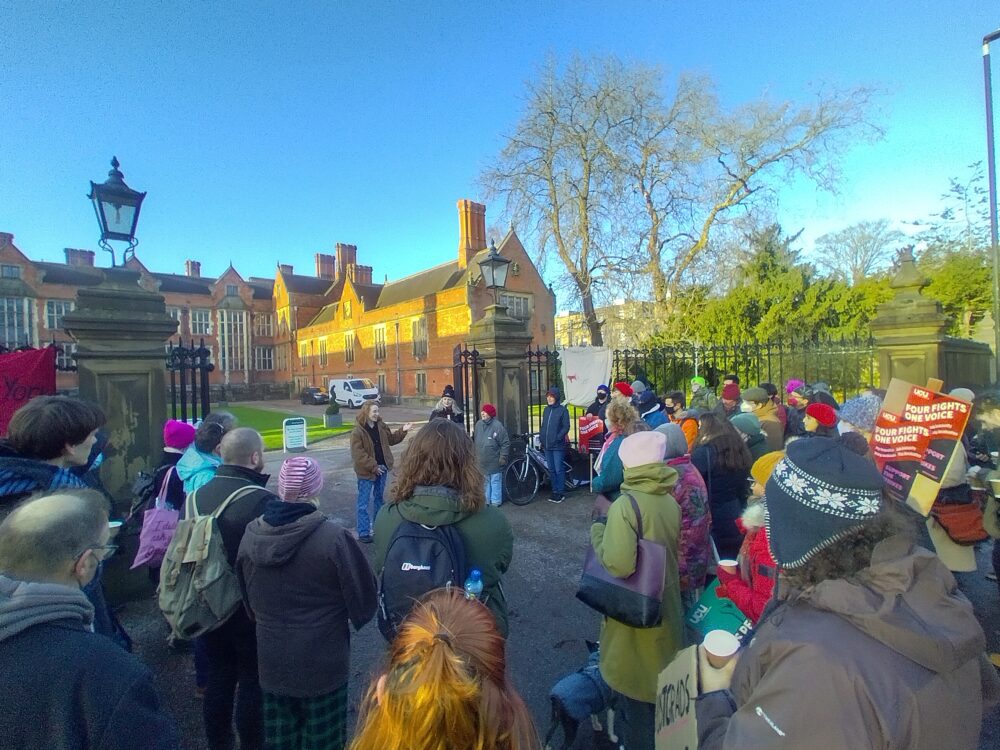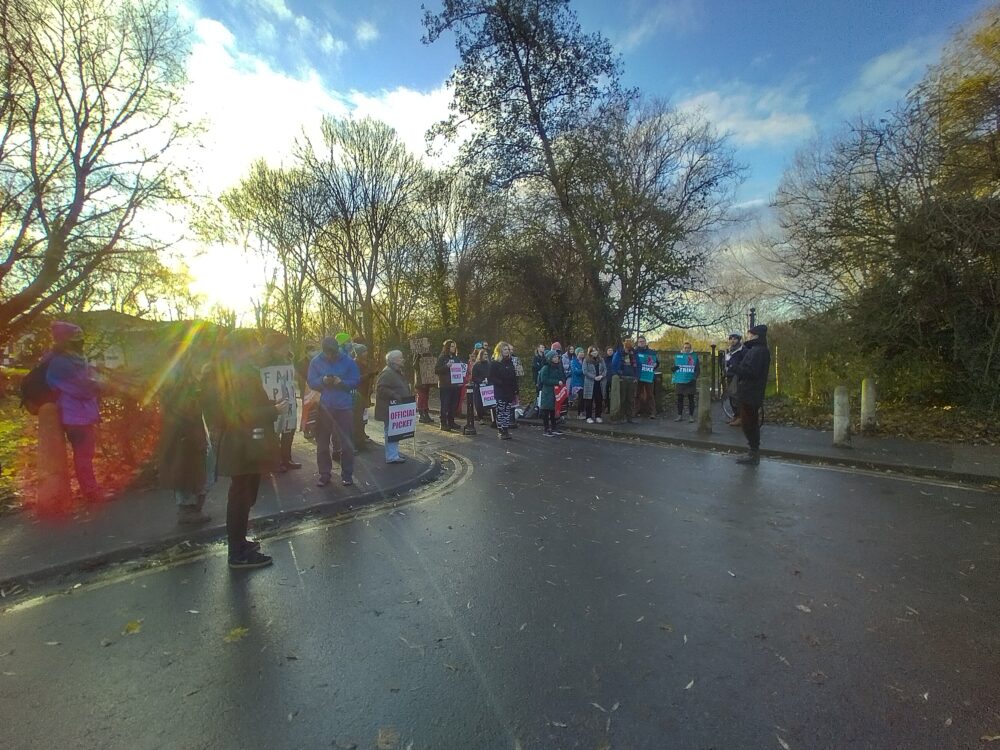York students will face up to ten days of strikes by lecturers this month.
Students at 68 institutions – including the University of York – will see their lecturers walk out in disputes over “beyond disgraceful” pay, conditions and pensions, the University and College Union (UCU) said.
Vice chancellor of the University of York Charlie Jeffery revealed the following strike dates in an email to students:
- Week 1: Monday 14 to Friday 18 February 2022 (5 days)
- Week 2: Monday 21 and Tuesday 22 February 2022 (2 days)
- Week 3: Monday 28 February, Tuesday 1 March and Wednesday 2 March (3 days)
Jeffery said his priority is to “minimise the impact on [students]”. However, employees of the university are not required to disclose whether they will be striking. This means that thousands of students may miss out on vital teaching.
“At present we do not know what the scale of the take-up for action will be,” Mr Jeffery said in another email sent out in November.
“Staff are not required to tell us in advance if they plan to take part, so it is difficult to assess the potential scale and impact; as before some students may feel more impact, but others may feel little or none at all.”
‘Exploitation claim’

The university is striking over pension cuts, low pay, and job insecurity. Many staff employed by universities are on zero-hour contracts, giving them no security from one week to the next.
In an email to students, an English tutor claimed that the strikes raise seek to raise issues of “exploitation and precarity”.
Steven Spencer, UCU University of York branch Membership Secretary, spoke to YorkMix about the strike action.
“Strike action in December and upcoming in February and March is in protest at a savage and unjustified attack on our pensions.
“The USS scheme was valued in March 2020, at the worst possible time. Unsurprisingly the result was a skewed view of scheme value that has led to a demand for staff and employers to contribute more – and for scheme members to have benefits slashed despite paying more in.
“UCU has tabled alternative proposals and tried to negotiate but at each stage the employers and USS in combination have acted to prevent progress.”
He said the union action was about “saying no to below inflation pay rises, no to precarious employment, no to unequal pay for women, people with disabilities and between ethnicities and no to workloads that are making our members ill.
“We want decent pay, decent careers and fair treatment of staff based on principles of equality. UCU members have worked hard throughout the pandemic and the preceding decade of attacks on pay and pensions and are collectively saying enough is enough.
Student petition

In December, a student petition in support of the strike with over 1,200 signatures was handed to the vice chancellor by students who “had stood shoulder to shoulder on the picket lines with UCU members”.
“They recognise that staff working conditions are student learning conditions and also that if staff pay, pensions and conditions are not protected, universities as we know them in the UK could disappear, replaced by privatised businesses that deliver little of the ‘public good’ that the vice chancellor of the University of York champions as his ambition for what the university should be,” Mr Spencer said.
[adrotate group=”3″]
Mr Jeffery says that he “regrets very much” that the UCU has called for more industrial action. The vice chancellor took a voluntary 20% reduction in pay in August 2020, giving him a reported annual salary of £285,000.
In December 2021, the UCU noted that the “gender pay gap in UK universities sits at 15%, while the disability pay gap is 9% and the race pay gap is 17%.
“Staff are also experiencing a crisis of work-related stress with over half showing probable signs of depression.”
